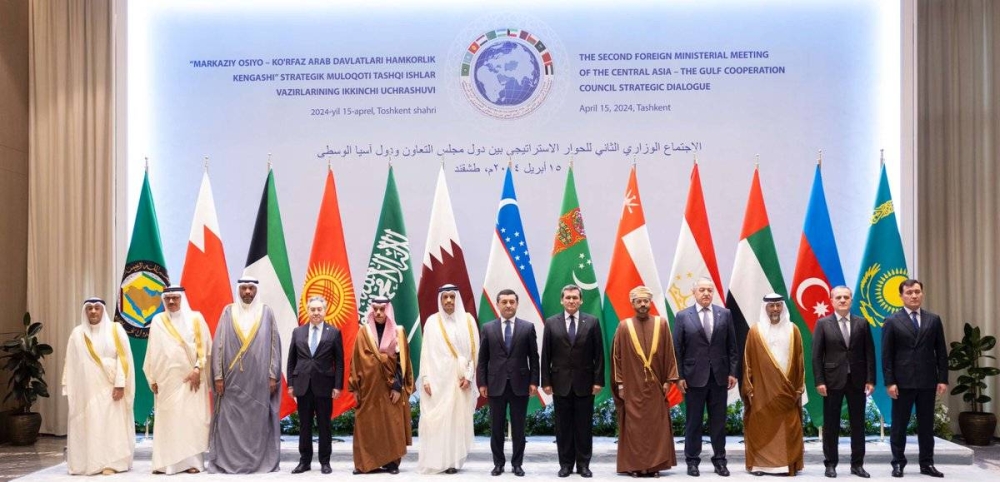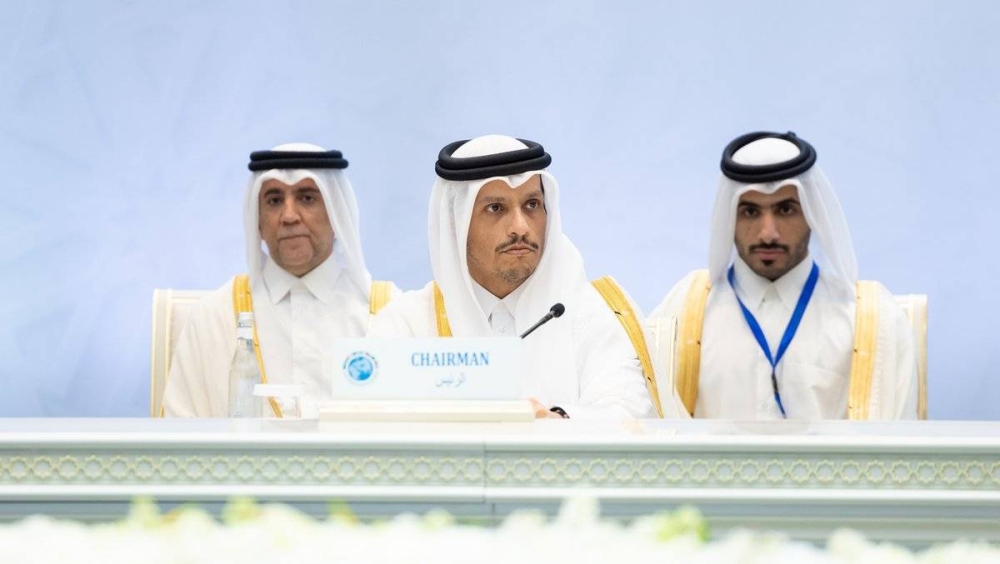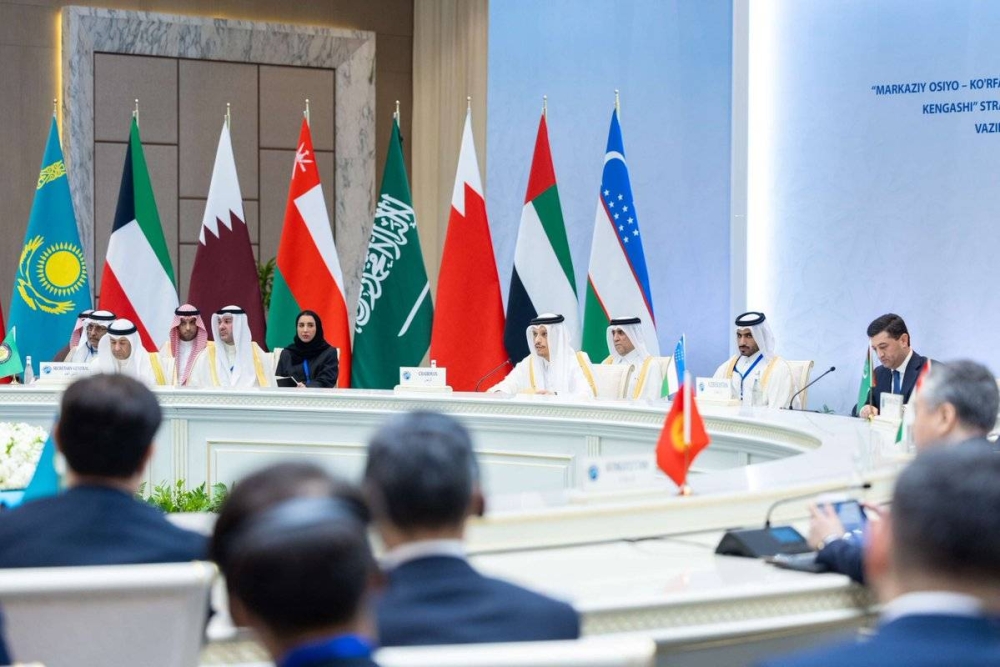Qatar has participated in the second ministerial meeting of the Strategic Dialogue between the GCC countries and Central Asian states held Monday in Tashkent, the Republic of Uzbekistan.
HE the Prime Minister and Minister of Foreign Affairs Sheikh Mohamed bin Abdulrahman bin Jassim al-Thani chaired Qatar's delegation at the meeting.
In Qatar's speech during the inaugural session, HE Sheikh Mohamed said that today's meeting expresses the credible desire to strengthen the relations, highlights the shared priorities, and capitalises on the potential and strengths of the Gulf Cooperation Council (GCC) and Central Asian states through expanding the existing co-operation frameworks and deepening the GCC roles as success partners for other territories.
There is an aspiration to discuss the details of the draft agreement on friendship, regional connectivity, and co-operation between the GCC countries and the Central Asia states during the upcoming period, he added, pointing out that the Ministerial Council of GCC countries gives foremost priority to the Strategic Dialogue with the Central Asian states and completes the plans in pursuit of enhancing co-operation with them.
HE Sheikh Mohamed indicated that the council reiterated that multiple times during its recent annual sessions, pointing out that the first Strategic Dialogue held in September 2022 formed a critical juncture in the cooperation process between the two sides culminated by the first historic summit of the leaders of GCC countries and Central Asian states in July 2023 in Jeddah, underlining the keenness of all states to effectively continue this process.
HE the Prime Minister and Minister of Foreign Affairs noted that the joint ministerial meeting is held amid numerous global challenges affecting the countries which can be collectively addressed by them, pointing out that the challenges include climate change, global food security crisis, terrorist threats, Islamophobia and others.
He emphasised that the escalation the region has undergone through during the past days unequivocally highlights the importance of maintaining the effective engagement and coordination among various countries of the region to ensure maintaining regional stability and peace, along with the shared emphasis on the joint commitment to the imperative of de-escalating the incidents that pose instability or undermine this peace.
This escalation shed the light on what has been repeatedly warned of since the outbreak of the war in the Gaza Strip regarding the danger of sliding into a wider cycle of violence in the region, along with the significance of the tireless efforts that have been constantly made to ensure that this does not happen. HE the Prime Minister and Minister of Foreign Affairs said that the common challenges in a variety of political, economic, cultural, trade, industrial and agricultural fields necessitate the collective and coordinated action on the part of all states, in addition to setting innovative solutions and practical measures, pointing out that this is evoked by the Joint Action Plan between the GCC countries and Central Asian states for 2023-2027 that was endorsed during the first joint ministerial meeting and approved by the summit of the leaders of GCC countries and Central Asian states.
He highlighted that the GCC countries and Central Asian states strive to achieve the objectives of this summit to further strengthen interconnection between them in all cooperation fields, study and set the perceptions and proposals in the areas of political and security coordination, enhance the relationships of financial and economic institutions and promote trade, investment and cooperation in education and vocational training, in addition to sharing experiences in health fields and other fields that help achieve sustainable development and realize the interests of nations.
He stressed the need for exerting steadfast efforts at the global level to consolidate the joint Asian action and strengthen political and strategic relations between the two sides at collective and bilateral levels.
He highlighted that Qatar seeks to promote further peace, security and stability at the regional and global levels through the role it undertakes as a reliable regional and global mediator in resolving multiple crises and conflicts through peaceful and diplomatic means, in addition to exerting good endeavors in exploring just and practical solutions and this was recently demonstrated in the achievement of the armistice agreement for the Palestinian brothers in the Gaza Strip.
In conclusion, HE the Prime Minister and Minister of Foreign Affairs affirmed Qatar's unwavering endeavors to find a real impetus towards a peace process with a just, lasting, and comprehensive settlement of the Palestinian issue at its core.


HE the Prime Minister and Minister of Foreign Affairs Sheikh Mohamed bin Abdulrahman bin Jassim al-Thani chairs Qatar's delegation at the Strategic Dialogue between the GCC countries and Central Asian states held Monday in Tashkent.

HE the Prime Minister and Minister of Foreign Affairs Sheikh Mohamed bin Abdulrahman bin Jassim al-Thani chairs Qatar's delegation at the Strategic Dialogue between the GCC countries and Central Asian states held Monday in Tashkent.
